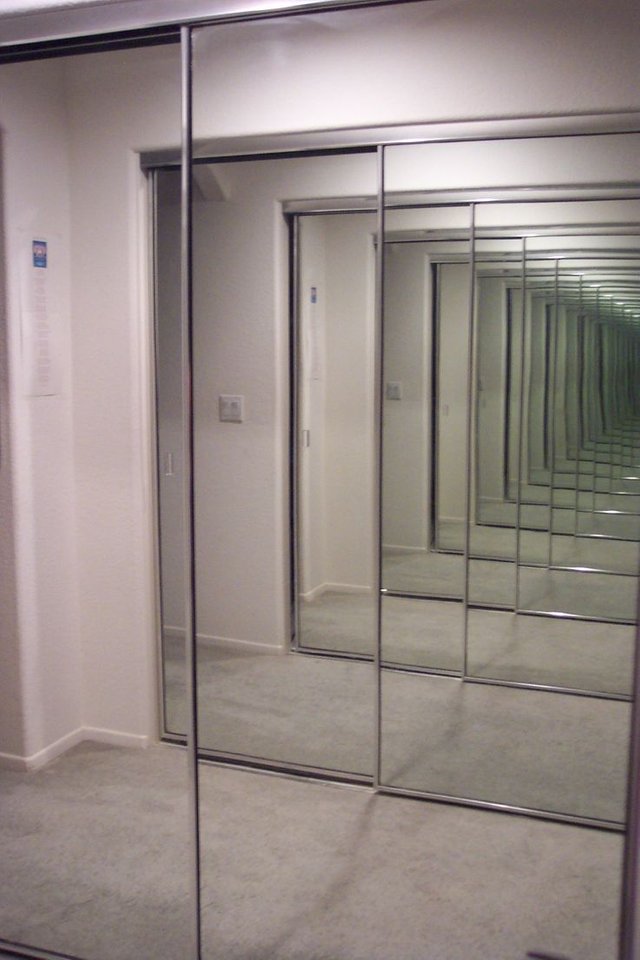But you can look into an infinite mirror, and you see what you see. Likewise, it's possible to add a half to a fourth to an eighth to a sixteenth and so on...
Yeah but you never know what's gonna be in the next mirror! A "prediction" is the answer to the question "what's in the last mirror?" If you say "the same as in every other mirror", then I can ask "then why are you still calculating?"
Well eventually the effects of the mirror grow smaller and smaller until it doesn't matter anymore:
The image need not be infinite to accomidate for the mirrors
Heh! Confusing the analogy with the analogue maybe!
I don't know, I'm not digging my heels, but like I said I think there might be problems when a prediction-machine tries to predict its own parts, i.e. the parts that it's using to make the prediction. It's like trying to pick yourself up with your own arms. So it seems more reasonable to me that such a machine must be outside the system, in order to be able to predict the system completely. But I'm not dead set on this.
It will never reach a final prediction. It's like looking into an infinite mirror.
But you can look into an infinite mirror, and you see what you see. Likewise, it's possible to add a half to a fourth to an eighth to a sixteenth and so on...
Yeah but you never know what's gonna be in the next mirror! A "prediction" is the answer to the question "what's in the last mirror?" If you say "the same as in every other mirror", then I can ask "then why are you still calculating?"
Well eventually the effects of the mirror grow smaller and smaller until it doesn't matter anymore:

The image need not be infinite to accomidate for the mirrors
Heh! Confusing the analogy with the analogue maybe!
I don't know, I'm not digging my heels, but like I said I think there might be problems when a prediction-machine tries to predict its own parts, i.e. the parts that it's using to make the prediction. It's like trying to pick yourself up with your own arms. So it seems more reasonable to me that such a machine must be outside the system, in order to be able to predict the system completely. But I'm not dead set on this.
I suppose there could be a problem with that